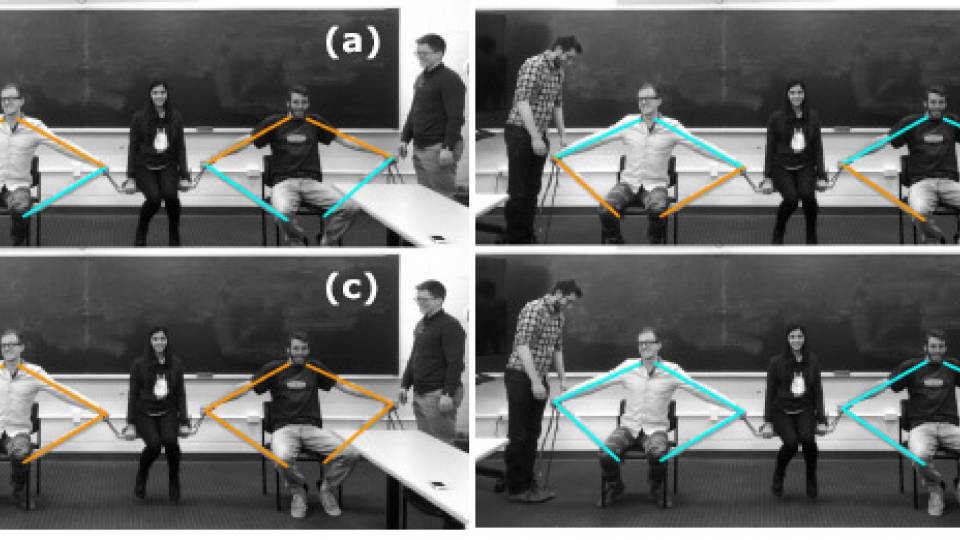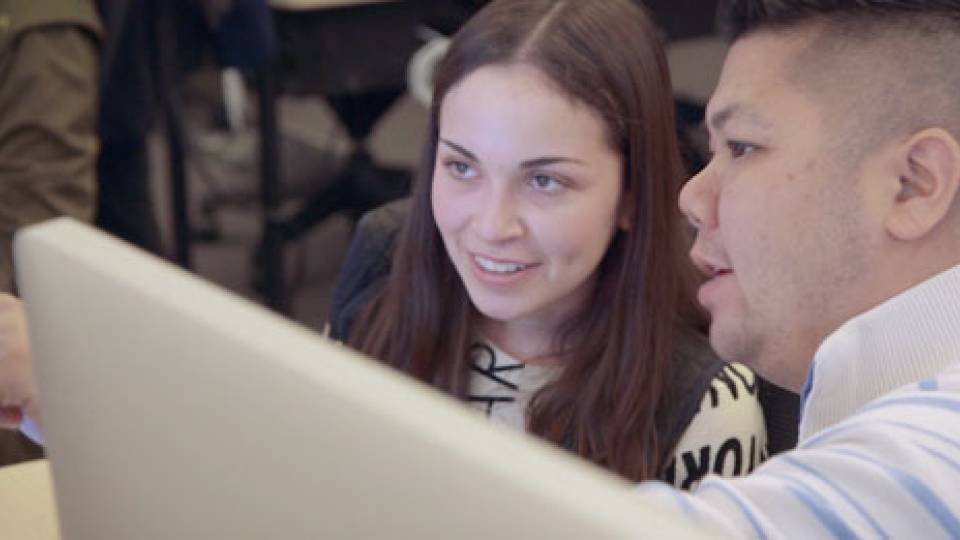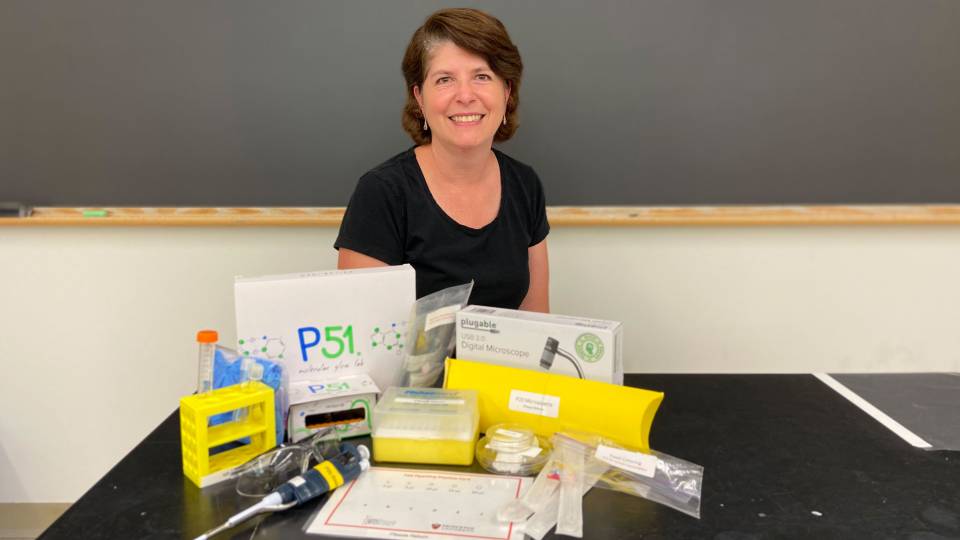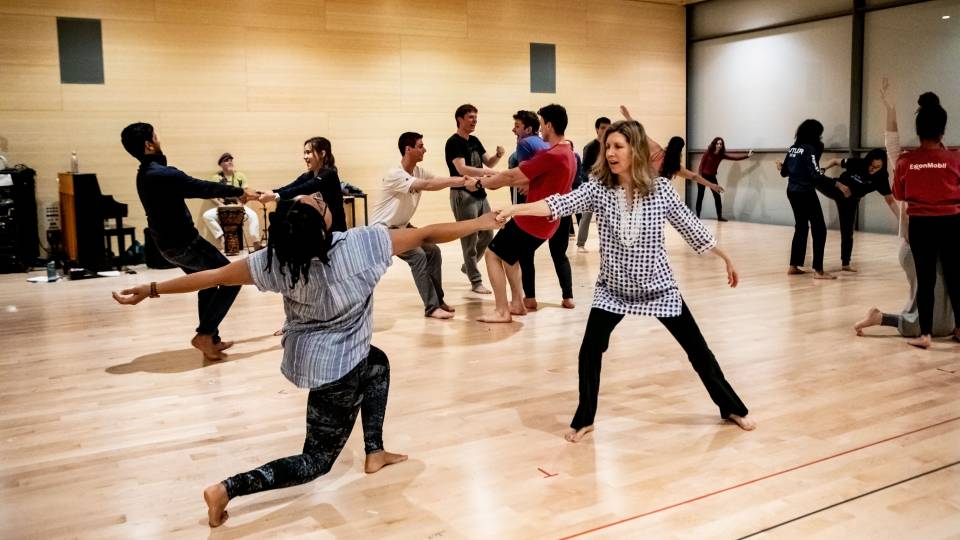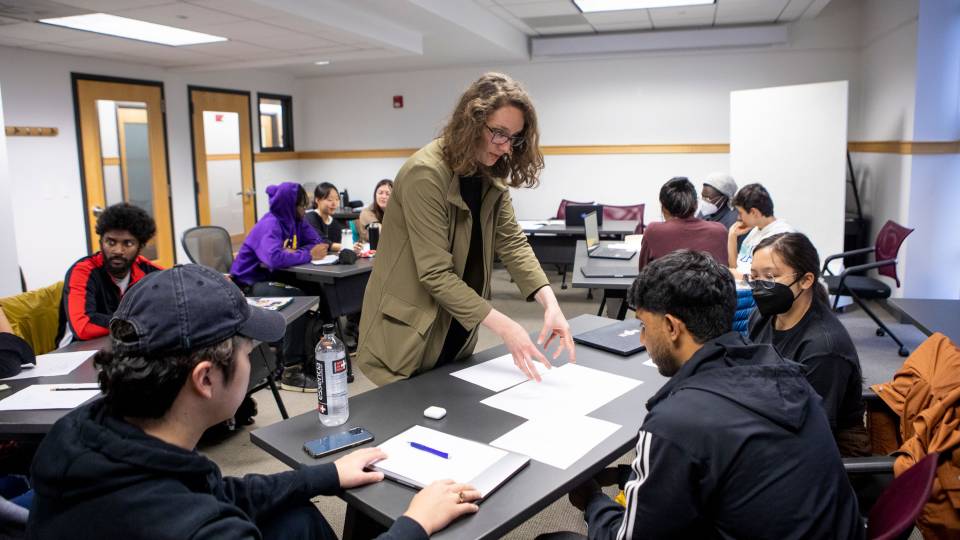Tucked in a corner on the first floor of Lewis Library is a state-of-the-art space where faculty can transform how they teach and students can expand the ways and skills they learn. The Digital Learning Lab (DLL) is a multimedia center that supports creative teaching and learning at Princeton.
"What we bring to the table is a commitment to making what happens in the classroom more interesting, more inspiring, more engaging for a diverse audience," said Daniel Claro, DLL manager. "Taking a flexible perspective and understanding that people learn differently is a really important part of what we're trying to do here in the Digital Learning Lab, and technology is an integral part of that because technology offers possibilities to suit different kinds of learning."
The lab provides a flexible space for interdisciplinary collaboration focused on teaching and learning with technology. Its high-end computers, optimized for multimedia projects, feature a slate of software tools for projects such as 3-D modeling, film editing, graphic design, data visualization and website development. The lab also has a private audio recording booth.
The DLL (formerly known as the New Media Center) is part of the McGraw Center for Teaching and Learning. In recent years, the McGraw Center's work has expanded to include a focus on digital pedagogy, supporting the application of online tools and new technologies to enhance the educational experience at Princeton. McGraw Center staff advocate for flexible, inclusive learning spaces on campus and oversee the University's online learning initiatives.
"My colleagues engage in a real dialogue with the faculty who are employing these technologies to make sure they're being used not simply as bells and whistles, but as a really integral part of conveying the information to the students and helping the students gain the capacity to use it in important ways," said Rebecca Graves-Bayazitoglu, director of the McGraw Center.
Faculty in ecology and evolutionary biology, engineering, politics, Spanish, urban studies and more have integrated the DLL's resources into their courses. Professor of History Martha Sandweiss collaborated with DLL staff for this fall's freshman seminar "Princeton, Slavery and Historical Memory," challenging students to create original multimedia pieces about someone whose family had a connection with slavery.
"It's a space where faculty, who more and more are asking students to produce not your traditional term paper but a video or a blog, [can] have a space where they can either send their students, or come and work with their students to do that," Graves-Bayazitoglu said.
By partnering with faculty to design new learning experiences and providing a space to experiment, McGraw staff help students build a variety of skills, such as developing digital archives and websites, audio editing, video production, storytelling and public speaking.
Graduate and undergraduate students also use the lab to work on class assignments or personal projects, with DLL staff and peer educators providing support via one-on-one consultations and workshops. DLL specialists, a staff of 24 undergraduates, help other students develop the hands-on, creative skills needed for their classes, research or careers beyond Princeton. The DLL also seeks out collaborations to build instructional opportunities, such as the design workshop series for undergraduates taught by graduate students from the School of Architecture.
In the course "Documentary Film and the City," Documentary Film Specialist Purcell Carson and Professor of History Alison Isenberg asked students to produce short films looking at Trenton in April 1968, in the days after Martin Luther King Jr.'s assassination. They worked closely with the DLL to build a database of archival material and on the videos.
"I had no experience at all with filmmaking, with film editing, with audio editing, and so the staff at the Digital Learning Lab have been very, very, very, very helpful throughout the process," said sophomore Jordan Antebi, a student in the class.
